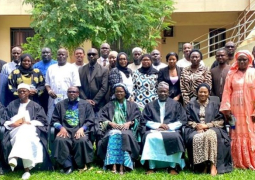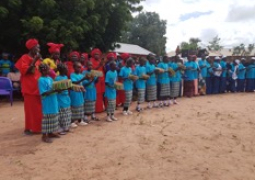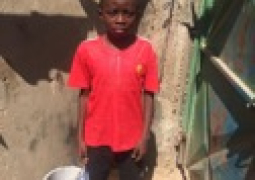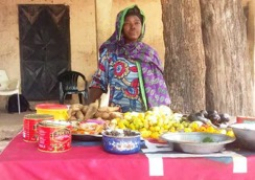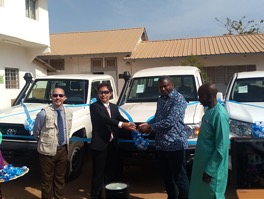
The items includes 17 vehicles, 50 motor bikes, 130 cold box and 49 vaccine freezers are said to be worth US$1.5 million. These items are meant to augment the country’s quest in ensuring quality, efficient and effective health care service in the country.
At the handing over ceremony, Gordon Jonathan Lewis, UNICEF country representative, extolled the excellence in commitment and dedication of the entire staff of the Expanded Programme on Immunization (EPI), who he said, are at the forefront at community level and ensuring that every child who has the right to be vaccinated is vaccinated.
“At the height of the Covid-19 pandemic back in 2020, numerous donors came to the aid of The Gambia through different means of the support and to the Ministry of Health. We are here today to celebrate the dedication and commitment of the work done.”
The government of Japan, he said, funded a US$2.5 million grant to help strengthen the Gambia’s health system with the covid-19 response.
“Of this amount, US$1.5 million was spent on strategic supplies and equipment to help recover, modernize and revitalize the national Expanded Programme on Immunization. The objective of this donation is nothing less than to strengthen the country’s health response system and covid-19 response including, strengthening infection prevention and control measures, thereby enhancing local capacity to handle and manage vaccines.”
For his part, Osamu Izawa, ambassador of Japan to The Gambia, spoke highly of the already existing cooperation between the governments of The Gambia and Japan, saying this cooperation is aimed at strengthening The Gambia’s capacity to address Covid-19.
“This grant amounting to US$2.5 million is provided to UNICEF Gambia within the framework of Emergency Grant Aid to acquire cold chain facilities for The Gambia. It is intended to provide the country with cold chain equipment including medical equipment such as cold storage facilities and transport as ‘last one mile support’ to enhance vaccination in The Gambia.”
Ambassador Osamu acknowledged that currently, ensuring equitable access globally in developing countries such as The Gambia and accelerating vaccination is a common challenge for international community.
Towards the goal of containing Covid-19, he said, Japan’s Emergency Grant is aimed at delivering vaccines to each and every person in the corners of The Gambia, adding that the assistance doesn’t only provide equipment but also capacity building for health workers in various areas as management, operations and maintenance of such equipment, data collection and larger vaccination campaign to build better health security in achieving Universal Health Coverage.
Receiving the items, Dr. Ahmadou Lamin Samateh, expressed delight to receive what he described as ‘this huge humanitarian donation of monumental proportion by the government of Japan to the government and people of The Gambia.
“This kind gesture in terms of timelines, quality and quantity, relevance and importance to our national immunization programme and overall health service delivery cannot be overemphasized.”
Minister Samateh described the gesture as the first of its kind that his Ministry has received such a donation from a single partner.
The gesture, he added, speaks volumes about the benevolence and support of the government of Japan and as true friends of The Gambia.
“It is globally known that the outbreak of covid-19 pandemic that has been going on for three years now has caused unprecedented widespread disruption to national immunization services, causing serious backslides in immunization coverage and other essential health care delivery services be it promotive, preventive and curative. Evidently it is in these resource-poor countries that like ours, where the impact of the pandemic is felt more, simply because of our fragile health care system.”
Dr. Samateh used the opportunity to once again thank Unicef and by extension the government and people of Japan for their support in strengthening the country’s health care delivery.


